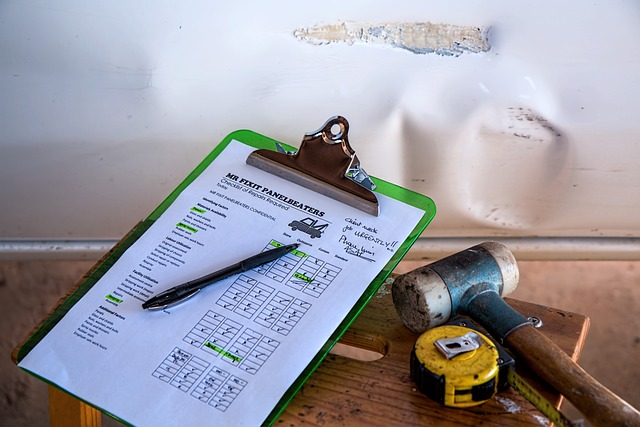In the labyrinth of legalities, the probate process emerges as a pivotal mechanism designed to assure an orderly distribution of a deceased individual’s estate. It adheres either to their expressed wishes in a will or, in its absence, bows to the mandate of Arkansas state law. The regulation is anchored by Arkansas probate laws that sketch out the guidelines for validating wills, appointing executors, pinpointing heirs, resolving debts and apportioning assets. This intricate dance is often drawn-out and marked by multiple complex stages – ranging from filing a petition for probate to distributing what remains after settling all obligations.
Yet within this convoluted framework lies an alternative path named “small estate probate”. Tailored for estates with more modest value nestled under Arkansas’ wide sky, it offers relief from conventional procedures like formal court hearings. Instead of being mired down in bureaucracy and expense that may overshadow the worth of smaller estates – small estate probates offer an efficient bypass route around these hurdles; saving time and cutting costs where they would otherwise be disproportionate.
This streamlined approach doesn’t diminish the importance of understanding this process or negate recognizing intricacies embedded within Arkansas’ Probate laws – indeed such knowledge becomes critical when navigating through these matters under Natural State’s vast canopy.
Probate Court Jurisdiction in Arkansas
In the perplexing labyrinth of estate management, Arkansas probate forms hold a role of noteworthy significance by delineating the jurisdiction of probate court. These indispensable forms initiate the complex dance that is probate court proceedings in Arkansas, a process laden with burstiness. To be specific, forms such as Petition for Probate of Will and Appointment of Personal Representative offer intricate details regarding assets left behind by the deceased, outstanding debts to be settled and potential beneficiaries.
It’s worth pointing out that each form performs its own unique function in this convoluted ballet, thereby simplifying an otherwise Byzantine procedure known as the probate process.
On another note – yet just as intriguing – we have the Arkansas probate timeline which meticulously outlines every step within this legal journey. It unfurls itself chronologically from admission of decedent’s will to filing these confounding but vital probate forms in court. The narrative then veers towards inventorying and evaluation efforts focused on deceased’s estate before settling into clearing debts and taxes. Its grand finale features distribution of assets among respective inheritors.
While it may seem exhaustive at first glance, this timeline serves a vital purpose; ensuring that executors and beneficiaries are well-versed with their roles and responsibilities while keeping them informed about probable duration they need to contend with during this whirlwind called ‘probate process’.
Initiating the Probate Process: Filing a Petition

Grasping the intricacies of probate costs is a cardinal point when navigating estate affairs. The fluctuating nature of these expenses in Arkansas creates an environment where these figures can deviate considerably. Variables such as the magnitude and sophistication of the departed individual’s estate, the presence or lack thereof a will, and the kind of assets involved can all exert influence on the final tally for probate fees. These factors could cause fees to oscillate between mere hundreds to towering thousands. To gain specific insights into Arkansas’ probate cost structure, it would be advisable to seek legal counsel from attorneys actively practicing within state borders.
In parallel fashion, comprehending probate operations in scenarios void of a will carries equal weightage. In Arkansas’ context, when an individual transitions without leaving behind a will (a scenario labeled as dying intestate), it falls upon probate law to dictate how said person’s assets are disseminated posthumously. State laws generally designate spouses and surviving offspring as immediate inheritors. However, absentia of a will often paves way for asset division conflicts which may draw court intervention into play – escalating complexity levels and potentially inflating timeframes and related costs alike. Henceforth, steering through Arkansas’ probate waters bereft of a guiding will calls for thoughtful deliberations coupled with well-founded advice leading towards balanced decisions.
Duties and Responsibilities of an Executor in Probate
The executor’s part frequently calls for an intricate grasp as well as interpretation of the elaborate legal jargon intertwined in the probate pathway. Intricacies of duties such as these are expounded upon in the Arkansas probate handbook, serving a dual role – both as an exhaustive encyclopedia for executors charting their course post-deceased and also a beacon illuminating the oftentimes labyrinthine universe of probate.
This jurisprudence tome, colloquially referred to by some as a “legal bible,” casts rays of clarity on tasks incumbent upon the executor: gathering and assessing decedent’s assets; addressing outstanding liabilities and taxes; ensuring equitable allocation of residual estate in adherence either with authenticated will or compliant with Arkansas’ laws governing intestacy.
In instances where probate transpires within Arkansas accompanied by a will, duties falling under executor’s purview can be distinctly delineated. The norm dictates that decedent would have assigned someone to don the mantle of executor within said will. However, activation isn’t bestowed instantaneously upon this nominated executor. On contrary grounds, official appointment from Probate Court is mandatory before responsibilities could be shouldered willingly by named individual.
The entire process often morphs into Herculean task demanding microscopic attention to minutiae coupled with steadfast dedication towards honoring deceased’s final wishes – rendering it far from suitable for those lacking courage.
Inventory and Appraisal of the Decedent’s Estate
The probate process encounters a significant juncture that demands an intensively thorough inventory and valuation of the departed’s estate. The onus typically rests upon the executor or manager of the estate to carry out this task. This procedure calls for the careful creation of a complete list outlining all assets and liabilities belonging to the deceased. Real estate, stocks and bonds, vehicles, personal possessions and even digital assets are embedded in this catalogue – all needing scrupulous documentation.
Moreover, this phase doesn’t overlook accounting for any outstanding debts left by the decedent such as pending mortgages, credit card balances or other obligations requiring resolution from within their amassed wealth.
Subsequent to drawing up this painstakingly comprehensive register comes appraisal; an act carried out with steadfast precision to determine each item’s market value. To ensure fairness and accuracy in determining these values – crucial factors impacting asset distribution at later stages – it is often overseen either by someone appointed by court order or a certified appraiser.
Each item’s worth pinned down during appraisal forms grounds for calculating inheritance tax, settling due debts before finally dispensing what remains amongst rightful heirs. Henceforth underscoring how integral precise evaluation is within probate proceedings as its effects reverberate deeply amongst beneficiaries left behind.
A thoroughgoing inventory coupled with fair assessment paves way towards closure in navigating through final phases intrinsic to probate processes.
Creditor Claims and Debts Payment in Probate
Once the inventory and appraisal of a departed’s estate has been conducted with scrupulous precision, the probate process ushers in its subsequent phase. Herein lies the task of addressing any looming creditor claims and ensuring settlement of debts. The court-appointed executor is put under an obligatory yoke to inform all potential creditors speculated to exist about the decedent’s departure from life. This juncture carries profound significance as it directly wields influence over residual assets that are destined for distribution amongst heirs and beneficiaries once all debt settlements have reached their closure.
In this stage, a labyrinthine responsibility descends upon the executor – they must diligently examine each claim made by creditors against the estate. The requirement here extends beyond simple scrutiny; indeed, they are expected to delve into Arkansas’ complex web of probate laws to determine both validity and precedence attached to these claims while strictly adhering to a timeline decreed by law itself. Upon successful validation, these creditor pleas are satisfied using available assets within Estate prior embarking on any form of distribution . It must not be forgotten that efficient management and payment of legitimate debts represent cornerstone responsibilities bestowed upon an executor during their tenure in Arkansas’s probate proceedings.
Distribution of Assets: Understanding the heir’s Rights
Deciphering the privileges of an heir in relation to an estate is a crucial step towards unraveling the complex details linked with asset distribution during the probate procedure. Fundamentally, after ensuring all outstanding debts and taxes of the decedent are cleared, it falls upon the executor to allocate what remains of the estate assets among beneficiaries as defined within the will’s clauses.
In scenarios where a testament is absent or non-existent, we find ourselves navigating through ‘intestate’ laws specific to Arkansas. Under such conditions, these state-level legislations craftily dictate a hierarchy that determines which relative stands eligible first for inheriting said estate.
It becomes indispensable for heirs to comprehend their rights remain safeguarded throughout this legal labyrinth known as probate proceedings. Indeed, heirs possess authority strong enough to challenge a will or even question appointment of any chosen executor should they consider it essential. Additionally, individuals who stand as beneficiaries can exercise their right to be notified about court actions and may seek reports elucidating how exactly estate assets are being handled by executors under scrutiny.
Moreover, they hold onto an inherent privilege that empowers them to implore court intervention if faced with executors whose decisions diverge from serving best interests of estates at hand. Acquainting themselves thoroughly with these rights and invoking them effectively switches gears for heirs – transforming them from passive spectators merely awaiting final asset allocation into active contributors influencing probate dealings directly.
As such, here are some of the key rights that heirs need to be aware of:
- The Right to Information: Heirs have a right to be informed about all aspects of the probate proceedings. This includes being notified about court actions and having access to reports detailing how estate assets are being managed.
- The Right to Challenge: If an heir believes there has been foul play or mishandling in the execution of a will, they have the authority to challenge it in court. They can also question the appointment of any executor if they deem it necessary.
- The Right to Court Intervention: If an executor’s decisions do not align with serving the best interests of estates at hand, heirs can implore for court intervention.
- Rights Under Intestate Laws: In cases where there is no will present, intestate laws come into effect determining which relative stands eligible first for inheriting said estate based on a defined hierarchy.
Understanding these rights is crucial as it empowers heirs by transforming them from passive spectators merely awaiting final asset allocation into active contributors influencing probate dealings directly. It ensures their interests remain safeguarded throughout this legal labyrinth known as probate proceedings and allows them greater control over matters pertaining inheritance and distribution of assets.
FAQ
Indeed, the probate process can be a labyrinthine legal procedure. Essentially, it’s designed to distribute a deceased person’s wealth to their rightful heirs or beneficiaries. This intricate process incorporates authenticating the will’s legitimacy, appointing an executor, identifying and cataloguing all assets left behind by the decedent, settling any outstanding debts and taxes before finally dispersing remaining assets as dictated by either the will or state law if no will exists.
In Arkansas specifically, Probate Court exercises its jurisdiction like a steady hand guiding this complex process. Its role is to ensure that distribution of deceased person’s estate aligns seamlessly with either their last testament or intestacy laws in case there is an absence of a valid will.
The onset of this bewildering journey starts with filing an intricately detailed petition in probate court. The document submitted includes comprehensive information about deceased individual’s identity and estate size; existence (or lack thereof) of a legitimate will; also proposed executor who’d manage affairs pertaining to inheritance.
An Executor plays multiple pivotal roles throughout these proceedings – from submitting deceased’s last wishes to court for approval; alerting inheritors/beneficiaries/creditors about demise; managing property left behind meticulously until all obligations are settled and then ensuring appropriate allocation according to stipulated instructions within Will or legal provisions laid out by respective State Law.
The onus lies primarily on appointed executor/administrator who needs to identify each belonging—be it tangible like realty properties & vehicles—or intangible ones including bank balances and investments, to assess their worth accurately.
Creditors’ valid claims hold priority. They are settled from estate’s assets before any distribution occurs towards inheritors/beneficiaries. If the estate’s value isn’t sufficient to satisfy all debts, then State Law outlines how remaining properties will be divided amongst creditors.
Rights enjoyed by an heir hinges on whether a will was left behind or not and also upon the state’s intestacy laws. Typically though, beneficiaries can expect their inheritance after settlement of all dues and taxes. They also have privilege of being notified about ongoing proceedings and possess right to dispute any part they deem improper.



